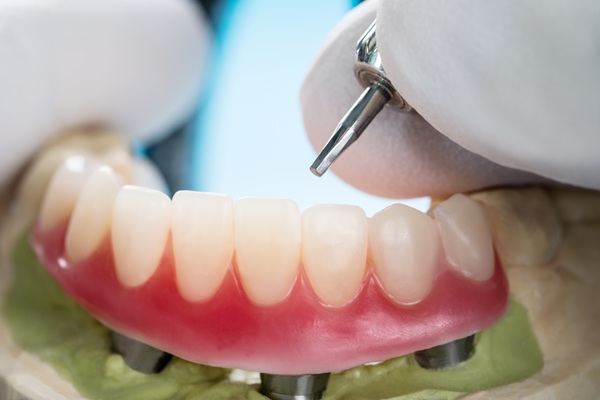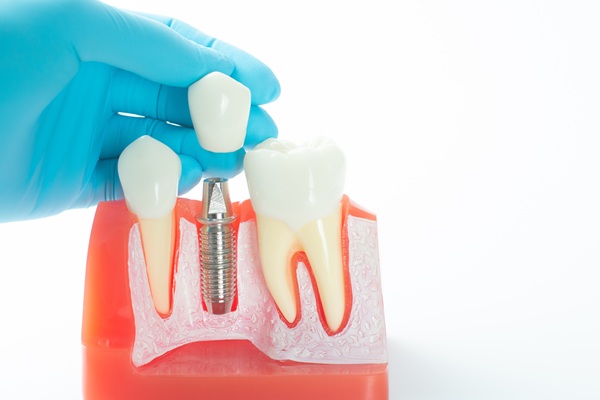Periodontics 101: Taking Care of Your Gums

Periodontics is an important part of overall oral health care, and it is essential to take proper care of your gums on a daily basis. By understanding what periodontics is and when to seek periodontic treatment, you can ensure that your gums are well cared for and good oral health is maintained.
Information about periodontics
The supporting structures of our teeth play a large role in our overall oral health as well as the health of our teeth. The following is everything one needs to know about periodontics and how to properly care for your gums to help avoid oral health complications from developing.
What is periodontics?
Periodontics is a branch of dentistry that focuses on the gums and other supporting structures of the teeth. The main issue periodontics is concerned with is periodontal disease — or gum disease — and a dentist is able to diagnose, treat and prevent periodontal disease in an effective manner. More serious cases may require a visit to a periodontist, who specializes in treating the gums.
Periodontics treatment options
While periodontics is most well-known for diagnosing and treating gum disease, there are also other treatment options that involve the gums. Here are several of the many treatment procedures involved with periodontics:
- Scaling and root planing
- Root surface debridement
- Dental implant placement
- Other various forms of oral surgery
Essentially any issue pertaining to the supporting structures of teeth — particularly the gums — can be effectively and efficiently diagnosed, treated and further prevented.
How to care for your gums
The best way to deal with periodontal disease is to prevent it from developing in the first place. The best way to do that is to practice good oral hygiene each and every day, which should involve a routine brushing schedule, using floss and mouthwash daily and checking your gums for any signs of periodontal disease.
When caring for your gums, be sure to watch for any concerning symptoms, such as red, swollen or bleeding gums. While it is important to brush the gums, be sure not to place too much pressure on them while doing so as it can cause increased sensitivity. In the event that gum recession occurs, it should be taken as a serious sign of periodontal disease. It is also important to visit the dentist on a regular basis to ensure quality gum health is maintained and ensure that no issues develop.
When to visit a dentist
In the event any signs of periodontal disease are noticed, be sure to visit the dentist as soon as possible to ensure that the early symptoms do not worsen or linger for longer than what is necessary. With prompt care, gum disease can be effectively treated without causing any long-term effects on your overall oral health.
If you want to learn more about periodontics and how to properly care for your gums - or fear you have developed a periodontal disease - give us a call and schedule a time to come in for a visit to find out how we can help you have healthy gums.
Request an appointment here: https://corderoperiodontics.com or call Rafael E. Cordero, DDS PA at (561) 763-9221 for an appointment in our Palm Beach Gardens office.
Check out what others are saying about our dental services on Yelp: Periodontics.
Recent Posts
Periodontal health goes beyond periodontal treatment at the dentist's office and a consistent oral care routine. Increasingly, research is shedding light on the intricate connection between nutrition, lifestyle, and periodontal health.In this post, we explore the integration of nutrition and lifestyle into periodontal treatment, highlighting the transformative impact that it can have on preventing and managing…
Periodontal treatment from a periodontist is a great way to address a range of gum and jawbone concerns. They can also treat issues like missing teeth. This review discusses the various treatment options that are available for patients who consult a periodontist and highlights the signs that indicate a need to visit this specialist.Popular treatment…
A periodontist will examine your complete medical and dental history on your first visit to the office. This is to check if you react to specific medications and have any pre-existing disorders impeding your dental care. Your periodontist will then perform a comprehensive gum examination to look for signs or symptoms of illness.In certain situations,…
Part of having good oral health is avoiding periodontal disease and maintaining healthy gums. Unfortunately, gum disease is a common issue that people have, though it is preventable. You can take everyday steps to avoid problems with your gums. If you neglect these needs, you can experience severe consequences. You should understand periodontal disease and…


